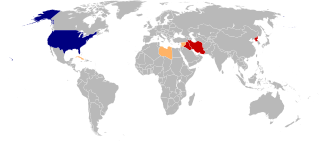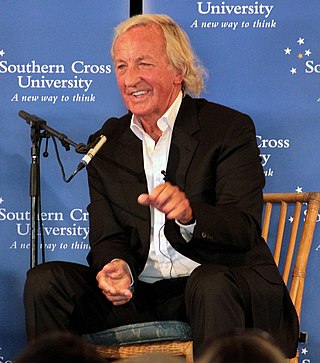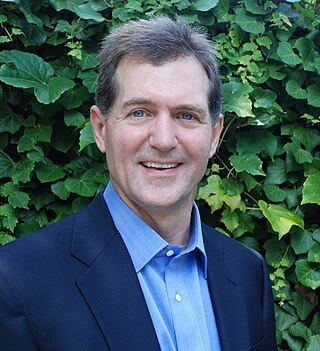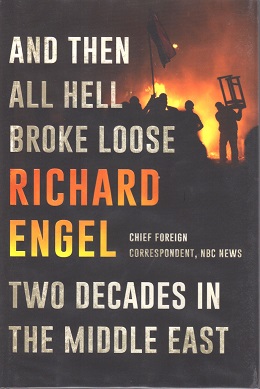Intifada is an Arabic word for a rebellion or uprising, or a resistance movement. It can be used to refer to an uprising against oppression.

The phrase "axis of evil" was first used by U.S. President George W. Bush and originally referred to Iran, Iraq, and North Korea. It was used in Bush's State of the Union address on January 29, 2002, less than five months after the September 11 attacks and almost a year before the 2003 invasion of Iraq, and often repeated throughout his presidency. He used it to describe foreign governments that, during his administration, allegedly sponsored terrorism and sought weapons of mass destruction.

The Second Intifada, also known as the Al-Aqsa Intifada, was a major uprising by Palestinians against the Israeli occupation, characterized by a period of heightened violence in the Palestinian territories and Israel between 2000 and 2005. The general triggers for the unrest are speculated to have been centered on the failure of the 2000 Camp David Summit, which was expected to reach a final agreement on the Israeli–Palestinian peace process in July 2000. An uptick in violent incidents started in September 2000, after Israeli politician Ariel Sharon made a provocative visit to the Al-Aqsa compound, which is situated atop the Temple Mount in East Jerusalem; the visit itself was peaceful, but, as anticipated, sparked protests and riots that Israeli police put down with rubber bullets, live ammunition, and tear gas. Within the first few days of the uprising, the IDF had fired one million rounds of ammunition.

John Richard Pilger was an Australian journalist, writer, scholar and documentary filmmaker. From 1962, he was based mainly in Britain. He was also a visiting professor at Cornell University in New York.
Michael Holmes is an Australian news anchor and correspondent for CNN International (CNNI), anchoring CNN Newsroom with Michael Holmes since 2019. The shows air between the hours of 12am and 4am Friday through Monday ET. Prior to that he anchored CNNI's CNN Today with Amara Walker. He has also anchored the 10a ET edition of International Desk and in early 2013 joined Suzanne Malveaux as co-anchor of CNN USA's Around The World at noon ET, an hour-long bulletin focusing on international news. Previously, he was the host of CNNI's behind-the-news program BackStory and other CNN International programs.

Jeremy Francis John Bowen is a Welsh journalist and television presenter.

Greg Myre is an American journalist and an NPR national security correspondent with a focus on the intelligence community. Before joining NPR, he was a foreign correspondent for the Associated Press and The New York Times for 20 years. He reported from more than 50 countries and covered a dozen wars and conflicts.

Stephen Farrell is a journalist who works for Reuters news agency. He holds both Irish and British citizenship. Farrell worked for The Times from 1995 to 2007, reporting from Kosovo, India, Afghanistan and the Middle East, including Iraq. In 2007, he joined The New York Times, and reported from the Middle East, Afghanistan and Libya, later moving to New York and London. In 2017 he joined Reuters, working as bureau chief in Jerusalem until Jan. 2022. He then worked in Ukraine and is now based in London.
Zaki Chehab is an Arab journalist. Founder and Editor-in-Chief of ArabsToday.net, an Arabic-language news website.

Douglas Abbott Macgregor is a retired U.S. Army colonel, government official, author, consultant, and political commentator. He was a leader in an early tank battle in the Gulf War and was a top planner in the 1999 NATO bombing of Yugoslavia. His 1997 book Breaking the Phalanx argued for radical reforms inside the Army. His thinking contributed to US strategy in the 2003 invasion of Iraq.
Benjamin C. Wedeman is an American journalist and war correspondent. He is a CNN senior international correspondent based in Rome. He has been with the network since 1994, and has earned multiple Emmy Awards and Edward Murrow Awards for team reporting.

The Institute for the Study of War (ISW) is an American nonprofit research group and think tank founded in 2007 by military historian Kimberly Kagan and headquartered in Washington, D.C. ISW provides research and analysis regarding issues of defense and foreign affairs. It has produced reports on the Syrian civil war, the War in Afghanistan, and the Iraq War, "focusing on military operations, enemy threats, and political trends in diverse conflict zones". ISW currently publishes daily updates on the Russian invasion of Ukraine as well as the Mahsa Amini protests in Iran and the Israel-Hamas War.
Goran Tomašević, is a Serbian photographer. Working for The Globe and Mail since May 2022, he has spent more than 30 years travelling around the globe to cover the world's biggest stories.
Sam Kiley is a Senior International Correspondent at CNN. Prior to CNN, he was the Foreign Affairs Editor of Sky News. He is a journalist with over twenty years' experience, based at different times of his career in London, Los Angeles, Nairobi, Johannesburg and Jerusalem. He has written for The Times, The Observer, The Sunday Times and Mail on Sunday newspapers, The Spectator and New Statesman weekly political news magazines, and reported for BBC Two, Sky One, Channel 4, and lately, Sky News.
Al Jazeera Arabic is a flagship news channel that primarily caters to an Arabic-speaking audience. Al Jazeera English, launched in 2006, is the English-language counterpart to Al Jazeera Arabic. According to Al Jazeera, Al Jazeera Arabic is editorially independent from Al Jazeera English, although it shares the same editorial vision. It is based in Doha and operated by the Al Jazeera Media Network.

Phyllis Bennis is an American Jewish writer, activist, and political commentator. Focusing mainly on issues related to the Middle East and the United Nations, she is a strong critic of Israel and the United States and a leading advocate of Palestinian rights.

And Then All Hell Broke Loose: Two Decades in the Middle East is a book written by Richard Engel about his journey in the Middle East as a freelance reporter. The book gives account of the terrorist activities and numerous wars in the region. His journey includes reporting in Egypt, Iraq, and Lebanon.

Pictures from Afghanistan is a 2020 documentary by Robbie Frazer that follows the work of Scottish journalist and war photographer David Pratt as he revisits the locations in Afghanistan that he reported on in the 1980s Soviet–Afghan War.

Pictures from Iraq is a 2022 documentary by Scottish filmmaker Robbie Fraser and Scottish photojournalist David Pratt that follows Pratt revisiting locations in Iraq that he reported during 1991, and during the 2003 invasion of Iraq.
Robbie Fraser is a Scottish film maker. He has made documentaries about the Scottish poet Hamish Henderson, the Scottish mountaineer Hamish MacInnes, and had made two documentaries about the work of Scottish photojournalist David Pratt: Pictures from Afghanistan and Pictures from Iraq.












